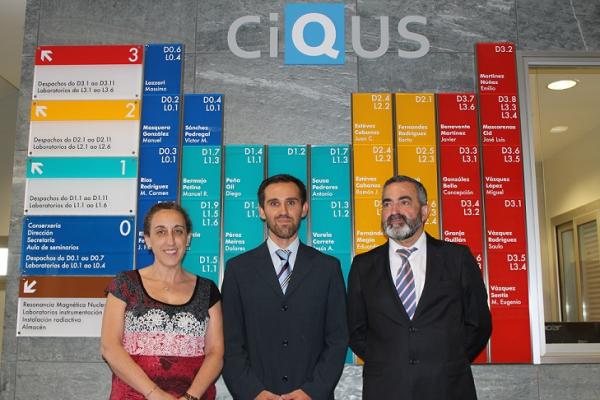Lecture: «PDE10A Inhibitors as Potential Treatments for Schizophrenia»

Dr. Carlos Martínez Viturro (Janssen-Investigación Básica, Toledo)
Aula de Seminarios do CiQUS
12:15 h
 Schizophrenia is a severe mental disorder characterized by a combination of positive (e.g., hallucinations and delusions), negative (e.g., anhedonia and poverty of speech) and cognitive symptoms.1 All currently available antipsychotic therapies rely on dopamine D2 receptor antagonism to exert their action and are highly efficacious addressing positive symptoms but ineffective for the other core symptoms of the disease.
Schizophrenia is a severe mental disorder characterized by a combination of positive (e.g., hallucinations and delusions), negative (e.g., anhedonia and poverty of speech) and cognitive symptoms.1 All currently available antipsychotic therapies rely on dopamine D2 receptor antagonism to exert their action and are highly efficacious addressing positive symptoms but ineffective for the other core symptoms of the disease.
Furthermore, they are associated with severe side-effects (e.g., Parkinson-like extrapyramidal (EPS) symptoms, prolactin release, weight gain or cardiac risk) which limit patient compliance.2 As a result, during the past 10-15 years, several alternative mechanisms of action have been investigated3 aiming for improved antipsychotic medications.
Among these different approaches, inhibition of phosphodiesterase 10A (PDE10A) has been proposed as a potential new avenue for the treatment of schizophrenia supported by the activity of PDE10A inhibitors in preclinical models of positive, cognitive and negative symptoms.
Starting from a HTS campaign, a focused medicinal chemistry optimization has leaded us to the identification of a series of imidazopyrazine derivatives as a novel class of PDE10A inhibitors. These compounds inhibit PDE10A mediated c-AMP inhibition in vitro and have also proven to be efficacious in preclinical models of schizophrenia. Evolution of our medicinal chemistry program, SAR and SPR analysis as well as a detailed profile for optimized PDE10A inhibitors will be described.


